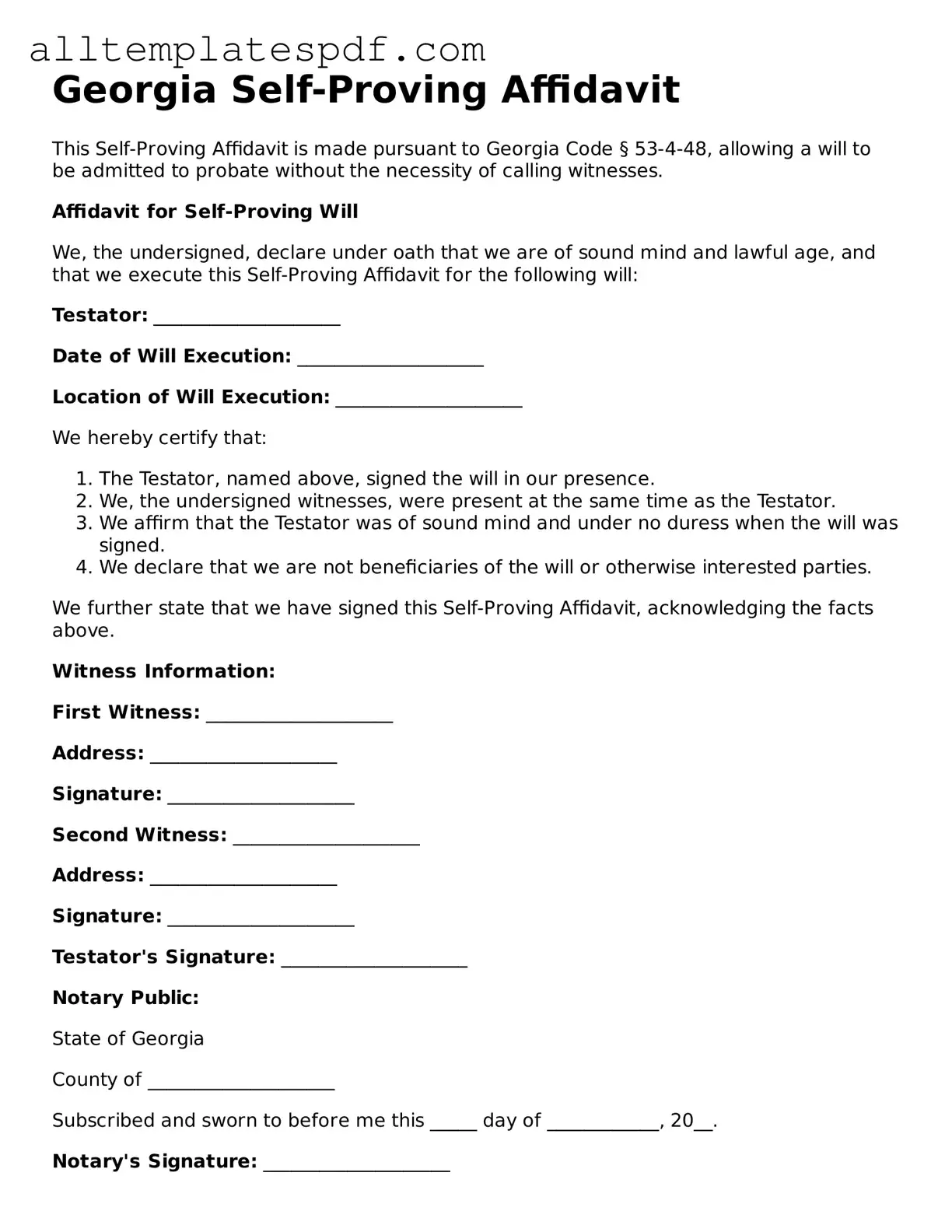Blank Self-Proving Affidavit Template for the State of Georgia
The Georgia Self-Proving Affidavit is a legal document that allows a testator's will to be validated without the need for witnesses to testify in court. This form simplifies the probate process, providing a streamlined approach to establishing the authenticity of a will. For those interested in ensuring their estate planning is efficient, filling out the form is a crucial step; click the button below to get started.
Open Editor

Blank Self-Proving Affidavit Template for the State of Georgia
Open Editor
Fast and easy form completion
Complete Self-Proving Affidavit digitally — fast and easy.
Open Editor
or
↓ Self-Proving Affidavit PDF Form
